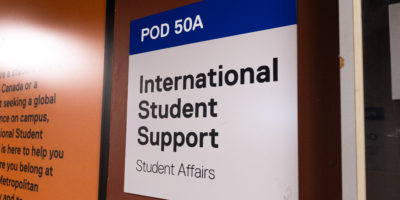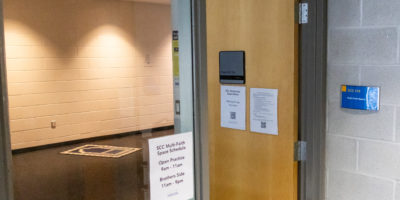By Adam Segal
Ryerson is prepping its pocketbook for a $30,000 infusion from the City of Toronto that will study how to link buildings on campus through an underground pipeline and lessen the blow of soaring heating and cooling costs.
The grant, which was awarded by the Toronto Atmospheric Fund (TAF), will pay for a study to determine if it’s feasible to send stream and chilled water—rather than electricity, which Ryerson currently uses—to new buildings east of Church Street via an underground pipe.
The university expects to receive 90 per cent of the money this week. The remaining 10 per cent will come after the study has been completed.
The university estimates it will pay about $1.75-million to heat the campus this year, about $490,000 more than what it paid last year.
Philip Jessup, TAF’s executive director, said having a central pipeline will also improve Ryerson’s air quality.
“The program will reduce greenhouse gas emissions,” Jessup said.
But the grant only covers a portion of the study’s price tag, said Rick Pews, Ryerson’s manager of maintenance and operations.
“$30,000 is a drop in the bucket compared to the overall cost,” Pews said.”
Pews estimates the final bill, including engineering costs, will be $10,000.
Ryerson’s campus planning and facilities department hopes to get the study underway in time for the construction of the Centre for Studies in Community Health, which is being built as an addition to the top of Eric Palin Hall.
New buildings for engineering and applied science and graphic communications management are also slated to be linked to the pipeline.












Leave a Reply